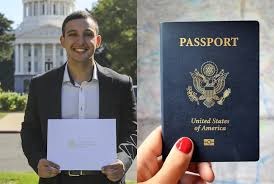How to Immigrate to Belgium from Nigeria in 2025/2026
Introduction
Belgium is one of Europe’s most attractive destinations for Nigerians who want to work, study, or start a new life abroad. Known for its strong economy, excellent healthcare, world-class universities, and central location in Europe, Belgium offers opportunities for both skilled and unskilled immigrants.
For many Nigerians, Belgium is appealing because of:
-
High standard of living and social welfare benefits
-
Access to quality education for students
-
Opportunities for healthcare workers, engineers, and IT specialists
-
Relatively straightforward student visa pathways that can lead to permanent residence
-
Proximity to other EU countries like France, Netherlands, and Germany
This guide explains step-by-step how Nigerians can legally immigrate to Belgium in 2025/2026, the visa categories available, requirements, cost breakdowns, and insider tips to boost your chances of success.
Why Belgium is a Top Choice for Nigerians
Before diving into the process, it’s useful to understand why Belgium stands out compared to other destinations like Canada, UK, or Germany.
-
Strong Economy – Belgium’s economy is highly developed, driven by industries such as pharmaceuticals, chemicals, logistics, engineering, IT, and finance.
-
Language Advantage – Belgium has three official languages: Dutch, French, and German. Many universities and companies also use English, making it easier for Nigerians to adapt.
-
Education Opportunities – Belgian universities rank among the best in Europe. Many offer international student scholarships, which reduce costs for Nigerians.
-
Central EU Location – Living in Belgium provides easy access to Schengen travel across 27 European countries.
-
Pathway to Residency – Certain visas (study, work, family reunification) can lead to long-term residence and eventually citizenship.
How to Immigrate to Belgium from Nigeria in 2025/2026
Main Pathways for Nigerians to Immigrate to Belgium
There are multiple routes Nigerians can take to move to Belgium, depending on their goals, qualifications, and financial capacity. The most common are:
-
Study Visa – For Nigerians seeking higher education in Belgian universities or colleges.
-
Work Visa – For skilled and unskilled workers with a job offer in Belgium.
-
Family Reunification Visa – For Nigerians joining a spouse, parent, or relative legally living in Belgium.
-
Investor/Business Visa – For entrepreneurs or investors who want to establish businesses in Belgium.
-
Asylum/Humanitarian Grounds – For individuals fleeing persecution, though this is difficult and requires proof.
Each pathway has specific requirements, benefits, and timelines. Let’s break them down.
1. Immigrating to Belgium as a Student
Studying in Belgium is one of the easiest and most reliable ways for Nigerians to immigrate.
Eligibility
-
Admission into a recognized Belgian university or higher institution.
-
Proof of sufficient funds (bank statements, scholarship award letter, or sponsorship).
-
Valid international passport.
-
Health insurance coverage.
Application Steps
-
Choose a University/Program – Many Belgian universities offer programs in English, especially master’s and postgraduate courses.
-
Apply and Get Acceptance Letter – Required before visa application.
-
Apply for Student Visa (Type D) – Submit documents at the Belgian Embassy in Abuja or Lagos.
-
Proof of Finance – Approximately €10,000–€12,000 per year is required to cover living expenses.
-
Medical and Police Clearance – Must prove you’re fit and without criminal history.
Advantages for Nigerians
-
Part-time work allowed (up to 20 hours per week).
-
After graduation, students can apply for a one-year residence permit to look for jobs.
-
A job contract after graduation can lead to long-term residence.
2. Immigrating to Belgium as a Worker
Belgium welcomes both skilled and unskilled workers, though demand is higher for skilled labor.
High-Demand Jobs for Nigerians
-
Healthcare professionals (nurses, doctors, caregivers)
-
ICT and software developers
-
Engineers and technicians
-
Teachers (English and STEM subjects)
-
Logistics and transport workers
-
Hospitality staff (chefs, waiters, cleaners, hotel staff)
Types of Work Permits
-
Single Permit (Work + Residence) – Required if you have a job offer from a Belgian employer.
-
EU Blue Card – For highly skilled workers with a high-paying job.
-
Temporary Work Permits – For seasonal or short-term jobs.
Requirements
-
Valid job offer or contract from a Belgian company.
-
Employer sponsorship for work permit.
-
Academic/professional certificates.
-
Health and police clearance certificates.
Process
-
Secure a job offer from Belgium.
-
Employer applies for a work permit on your behalf.
-
Once approved, you apply for a long-stay work visa at the embassy.
-
Travel to Belgium and collect residence permit.
3. Family Reunification
If you have a spouse, parent, or relative already legally living in Belgium, you may be eligible to join them.
Requirements
-
Proof of relationship (marriage certificate, birth certificate, etc.).
-
Sponsor in Belgium must show financial capacity to support you.
-
Adequate housing arrangement.
Benefits
-
Easier pathway to long-term residence.
-
Opportunity for dependents (children and spouse) to study and work.
4. Investor or Business Visa
For Nigerians with capital, Belgium allows business investment immigration.
Options
-
Establish a company in Belgium (e.g., logistics, import-export, IT, or restaurant).
-
Invest a significant sum in Belgian businesses or create jobs locally.
Advantages
-
Immediate right to live and run your business in Belgium.
-
Potential pathway to permanent residence.
Challenges
-
Requires high financial investment.
-
Proof of business plan and financial stability is mandatory.
5. Asylum and Humanitarian Grounds
While this is less common, some Nigerians apply for asylum if they can prove persecution, war, or danger in Nigeria. However, Belgium carefully screens such cases, and false claims can lead to deportation.
How to Immigrate to Belgium from Nigeria in 2025/2026
Step-by-Step Guide to Applying for Belgium Visa from Nigeria
-
Determine Visa Type – Study, work, family, or business.
-
Collect Required Documents – Passport, financial proof, health insurance, police clearance, academic/work records.
-
Book Appointment at Belgian Embassy – Submit biometrics and documents.
-
Pay Visa Fees – Varies depending on visa type (€180–€350 on average).
-
Attend Interview – Be prepared to explain purpose of travel and provide genuine answers.
-
Visa Decision – Processing can take 4–12 weeks depending on visa type.
-
Travel to Belgium – Once approved, book ticket and prepare for relocation.
Cost Breakdown for Nigerians Immigrating to Belgium
-
Visa Application Fee: €180–€350 (₦250,000–₦500,000 approx.)
-
Proof of Funds: Minimum €10,000 (₦14–15 million approx.) for students; varies for workers.
-
Flight Ticket: ₦400,000–₦700,000 depending on season.
-
Accommodation in Belgium: €400–€700 monthly depending on city.
-
Miscellaneous: Insurance, medical exams, translations, document legalizations.
How to Immigrate to Belgium from Nigeria in 2025/2026
Common Challenges Nigerians Face
-
Visa Rejections – Often due to weak financial proof, forged documents, or lack of genuine intent.
-
Language Barrier – Dutch and French are widely used; learning basics improves job chances.
-
High Cost of Living – Especially in Brussels and Antwerp.
-
Cultural Adjustment – Adapting to new laws, punctuality, and lifestyle.
-
Competition for Jobs – Skilled workers have higher chances, but unskilled workers must be strategic.
Tips for Success
-
Be Honest: Submit genuine documents; embassies verify thoroughly.
-
Plan Finances Early: Open domiciliary accounts or get sponsors ready.
-
Apply Early: Processing takes time; avoid last-minute applications.
-
Learn a Language: Basic French or Dutch gives an edge.
-
Target In-Demand Fields: IT, healthcare, engineering, and logistics are priority areas.
Life in Belgium for Nigerians
-
Communities: Nigerian communities exist in Brussels, Antwerp, and Ghent.
-
Education: Nigerian students integrate well, with opportunities for scholarships.
-
Religion: Freedom of worship; Nigerian churches and mosques are common.
-
Food: Nigerian stores and restaurants exist, but imported items are expensive.
-
Remittances: Easy to send money back home via banks and international transfers.
Pathway to Permanent Residence and Citizenship
-
Temporary Residence: Issued first for work, study, or family.
-
Long-Term Residence: After 5 years of continuous legal stay.
-
Citizenship: Usually after 5–10 years, depending on integration, language ability, and financial stability.
Frequently Asked Questions (FAQs)
Q1: Can unskilled Nigerians migrate to Belgium?
Yes, but it is harder. You need a job offer in sectors like cleaning, hospitality, or agriculture.
Q2: Can students work full-time?
Students can work part-time (20 hours weekly) during term and full-time during holidays.
Q3: How much does it cost to move from Nigeria to Belgium?
On average, ₦15–20 million is needed for tuition, proof of funds, and travel. Workers need less if the employer sponsors.
Q4: Is Belgium better than Canada or UK for Nigerians?
It depends on your goals. Belgium offers EU access and lower tuition; Canada offers wider immigration options.
Q5: Can Nigerians bring family along?
Yes. Family reunification is possible after securing residence.
Conclusion
Belgium offers multiple legal pathways for Nigerians who want to immigrate in 2025/2026. Whether you are a student, skilled professional, entrepreneur, or family member joining a loved one, Belgium provides opportunities for a stable and fulfilling life.
The most reliable route remains studying in Belgium, which can lead to job opportunities and permanent residence. Skilled workers also stand a good chance, especially in healthcare, IT, and engineering.
Success depends on careful preparation, genuine documents, financial readiness, and adaptability. With the right strategy, Nigerians can build rewarding futures in Belgium and enjoy the benefits of living in one of Europe’s most advanced nations.





